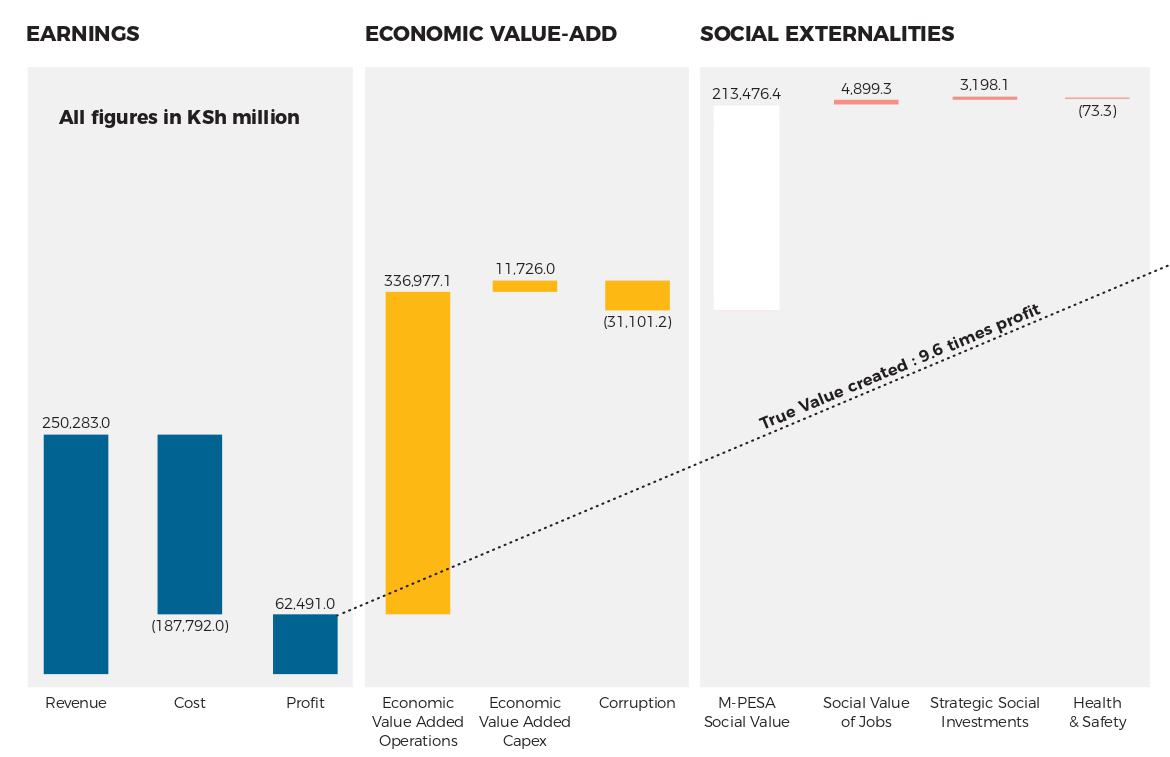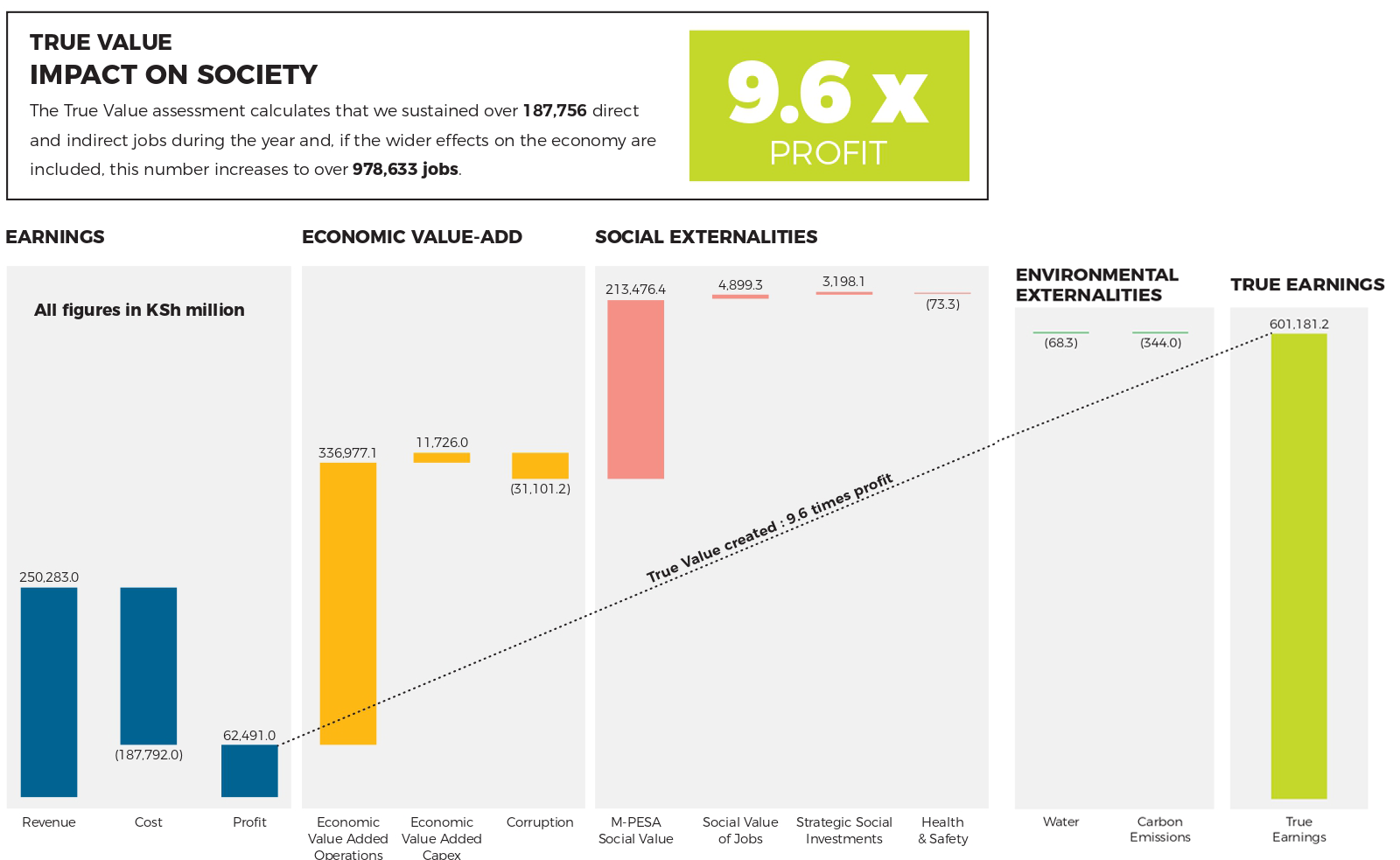How we arrive at these numbers
KPMG first carried out a “True Earnings” exercise for Safaricom in 2015 to identify the most material socio-economic and environmental impacts of Safaricom and to quantify them in financial terms. During that year, Step 1 of the True Value methodology was carried out to estimate the True Earnings of Safaricom for the year in question.
Primary research enabled us to complete this exercise and to ascertain the social value created by M-PESA in particular. To quantify this social value, principles from the Social Return on Investment (SROI) methodology were used. SROI is an opensource, principles-based method used to account for social change. More detail regarding the 2014/15 True Earnings exercise can be accessed at: https://home.kpmg.com/content/dam/kpmg/pdf/2016/07/case-study-safaricom-limited.pdf
Since 2014/15, True Earnings has been used by Safaricom as a way of understanding and expressing the value that the company creates for society. A decision has been made not to carry out the same level of primary research in the following years, but to extrapolate existing primary data and research points from 2014/15, or other years in which relevant data has been publicly available, to create a picture of the relevant period that is as accurate as possible. This has necessitated making certain informed assumptions, all of which have been interrogated internally and confirmed to be the most appropriate in the specific Kenyan context. For the 2018/19 True Earnings update, secondary data was updated with the latest available information. The update for 2018/19 did not include new/additional M-PESA products, new primary data, nor a renewed examination of any of the activities of the company.
Further research will be undertaken in the current financial year and the assumptions updated accordingly. This will be reflected in the 2020 True Value bridge.





